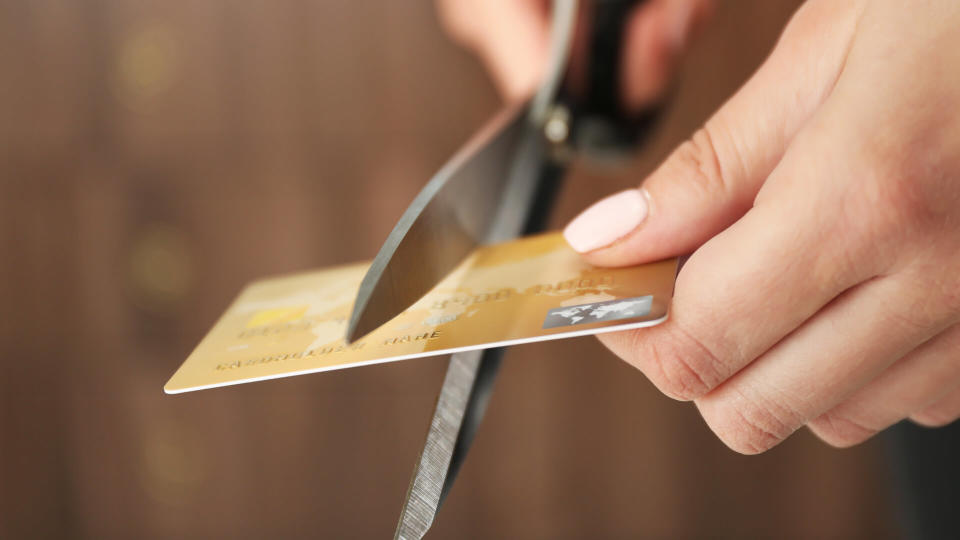Jaspreet Singh: 10 Ways To Save Money When You’re Broke

Life is unpredictable, and unexpected expenses can crop up at any time. Medical bills, car repairs, urgent home repairs — all of them require money and fast. When you’re broke, saving can feel like a monumental task to undertake, but it is completely possible, says finance expert Jaspreet Singh.
Discover: 5 Ways To Elevate Your Finances Daily
Learn: How To Get Cash Back on Your Everyday Purchases
Having a small emergency fund can provide a financial safety net during difficult times, keeping you from falling into debt or crisis. While it will take conscious effort, saving money, no matter how little, eventually can give you a significant financial cushion. Here are 10 ways Singh recommends beginning to put money aside today.
Quit Using Credit Cards
Credit cards make it all too easy to make impulsive buys since you’re not immediately parting with cash. By using cash or a debit card for transactions, you’re forced to think more carefully about your purchases, ultimately helping you reduce unnecessary spending.
Since you typically need to make a minimum monthly payment, which is a small percentage of your balance, your debt can accumulate quickly due to interest. By not using credit cards, you avoid this cycle and can save money.
The ‘One Hour’ Savings Rule: David Bach Says It’s Only ‘Proven, Easy Way To Get Rich’
Cook More at Home
Reducing takeout or dining out is one of the easiest ways to minimize spending but also one of the hardest habits to kick. One recent US Foods survey of 1,000 Americans revealed that the average American spends $166 monthly on dining out.
Preparing your meals at home, on the other hand, is typically more cost effective than going to restaurants or ordering takeout. You can buy ingredients in bulk, take advantage of sales and discounts, and portion your meals to fit your budget, resulting in a lower cost per meal.
Plan Your Meals
Planning your meals means you buy only the ingredients you need for those meals. This reduces the chances of food spoiling or being wasted in your pantry or fridge (money that could go toward your savings).
Frequent trips to the grocery store also lead to more spending on impulse purchases and items you don’t need. With meal planning, you can minimize the number of trips and stick to your shopping list and budget.
Get Smarter About Free Stuff
Finding free stuff can be a great way to help you save money and acquire items or services without spending a dime. There are a ton of websites and forums out there where both people and companies offer free samples, products or services. Scope out websites such as Craigslist and Nextdoor and check your local Facebook groups to find things like clothes and even furniture.
Many stores also offer free samples or promotional items, especially in the beauty and health industries. Keep an eye out for these while shopping.
Switch Your Provider
From your internet, cable and cell phone bill to insurance and more — switching providers can lead to cost savings. By doing some research you can always find better deals.
Over time, you may have accumulated extra services or features that you no longer use. In switching providers, you can choose plans that better align with your actual needs, saving you money on services you no longer use.
Visit Your Library
Frequenting your local library can be a valuable resource for saving. Libraries contain extensive collections of books, magazines, movies and newspapers that you can borrow for free. They also provide free internet: If you don’t have internet access at home, you can use the library’s free connection for research, job searching or other online tasks.
Many libraries also offer free workshops and classes on a variety of subjects, including computer skills, financial literacy and more.
Look Into Refinancing Your Loans
Refinancing your loans can be a smart financial move. One of the primary benefits is securing a lower interest rate — meaning you’ll pay less over the life of the loan. This can free up more cash in your monthly budget for other expenses and savings.
See Which Perks You’re Eligible For
Knowing which perks and benefits you’re eligible for can help you save money. If you’re employed, for example, your workplace might offer a range of benefits like health insurance, retirement contributions, flexible spending accounts and even wellness programs.
Similarly, if you’re a student or educator or you have school-aged kids, you could be eligible for education-related discounts, scholarships and grants. Knowing your eligibility can help you save on tuition, books and educational expenses.
Open a High-Yield Savings Account
As you begin saving by reducing costs, you should consider opening a high-yield savings account. This is a great option for optimizing the amount you’ve already set aside.
Understand Your Bad Spending Habits
This is a crucial step in improving your financial well-being and saving money. Recognizing your bad spending habits allows you to pinpoint where you’re wasting money. It might be on impulse purchases, dining out excessively, or subscribing to unnecessary services.
Once you identify these areas, you can take steps to address them. It also enables you to set clear financial goals. Whether that means building an emergency fund, saving for a vacation or paying off debt, having concrete goals can motivate you to cut back on unnecessary expenses and build a solid financial foundation.
More From GOBankingRates
More Bang for Your Buck: These 20 Cars Will Last You Twice as Long as the Average Vehicle
Here Are All the States That Don't Tax Social Security Benefits
This article originally appeared on GOBankingRates.com: Jaspreet Singh: 10 Ways To Save Money When You’re Broke
